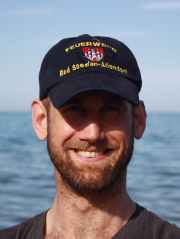This month, we talk to Greg Kobele (Universität Leipzig) about what linguistics is and how abstract mathematics can be of use to it. Click here to listen to our conversation.
 Linguists study the rules that speakers of a given language actually follow when they speak. Not made-up rules like “never end a sentence with a preposition,” which no one ever follows (including the teachers who shame their students for not following them), but the actual rules you need to know in order to understand English. Like how you have to say “My name is Matt” rather than “My name are Matt.” This may seem like a trivial task, but in fact the rules that native speakers of a given language actually follow when they know the language are mind-bogglingly complicated, when you try to sit down and describe them precisely. Lots of incredibly smart people have been trying to sit down and describe the rules of English precisely, and they’re still nowhere near done.
Linguists study the rules that speakers of a given language actually follow when they speak. Not made-up rules like “never end a sentence with a preposition,” which no one ever follows (including the teachers who shame their students for not following them), but the actual rules you need to know in order to understand English. Like how you have to say “My name is Matt” rather than “My name are Matt.” This may seem like a trivial task, but in fact the rules that native speakers of a given language actually follow when they know the language are mind-bogglingly complicated, when you try to sit down and describe them precisely. Lots of incredibly smart people have been trying to sit down and describe the rules of English precisely, and they’re still nowhere near done.
In this episode, our guest argues that the best way to systematically study our ability to speak is to a) make generalizations based on data the researcher directly observes, b) try to make those generalizations as systematic and wide-ranging as possible, and c) state those generalizations as precisely as possible, using the tools of abstract mathematics. Researchers will then be replenished with new ideas about what to go back out into the field and look for.
Join us as Greg Kobele walks us through the life cycle of linguistics, from observation to preliminary systematization to abstract mathematization and back again!
Matt Teichman
Leave a Reply